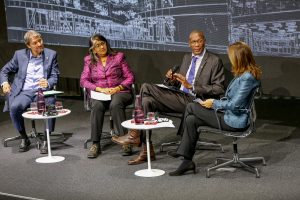
More than 20 professors, researchers and students work directly on SDG 10. Their work includes academic publications, academic and executive education, and engagement in external initiatives. We also offer an Executive Master in Development Policies and Practices, as well as academic Masters and PhD programmes and courses on International Economics.


Supporting Countries in the Context of Overlapping Crises

How the Pandemic Deepens Health Inequities: The Case of the United States

Catalyst or Hindrance? The link between trade policy & sustainable development

Understanding the Nexus between Migration and Health in the Global South

L’instrumentalisation des migrations et la tentation de l’état d’urgence permanent: le droit européen d’asile en question

The Revolt of the Elites

Villes sous tension ?

COVID-19: A magnifier of social inequality

Digital Work in the Global South: Challenges and Opportunities

Graziella Moraes Silva and Gopalan Balachandran are the new co-directors of the Albert Hirschman Centre on Democracy

Bastiaan Quast blog
Discover more SDGs
Goal 10 calls for “reducing inequalities in income as well as those based on age, sex, disability, race, ethnicity, origin, religion or economic or other status within a country. The Goal also addresses inequalities among countries, including those related to representation, migration and development assistance” as put by the UN Sustainable Development Knowledge Platform. Read more about Goal 10